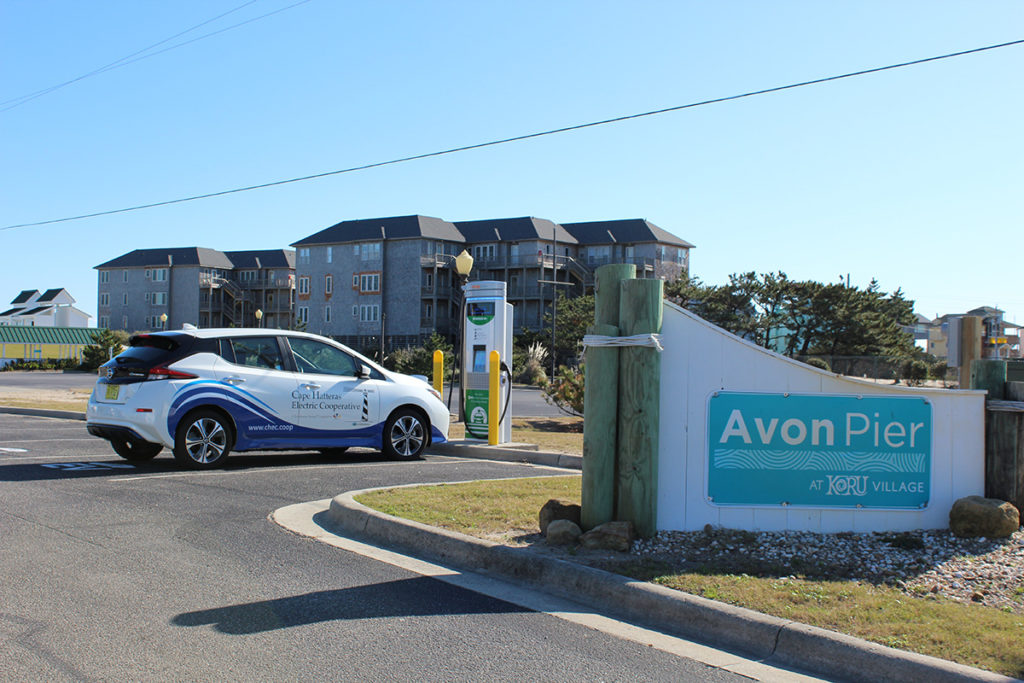
Eight North Carolina electric cooperatives have been awarded a total of $700,000 by the state to expand the already extensive co-op-owned network of electric vehicle charging stations.
The co-ops will use the money, appropriated by the General Assembly and awarded by the Department of Environmental Quality, to install 10 high-speed charging stations along travel corridors in rural and suburban communities in the next two years. The state’s co-ops already have nearly 60 stations, many in high-traffic tourist destinations such as parks, lakes and beaches. It is one of the largest co-op-owned networks in the nation.
These funds come from the $30 million available through the first phase of the state’s $92 million share of the national Volkswagen settlement. The Environmental Protection Agency charged that Volkswagen, based in Germany, cheated on U.S. emissions tests with vehicles produced from 2009 to 2016. In 2017, the automaker pleaded guilty to fraud, obstruction of justice and falsifying statements as part of a $4.3 billion settlement with the U.S. Department of Justice.
The money will help the co-ops fill in critical charging gaps throughout rural North Carolina, said Diane Huis, senior vice president of innovation and business development for North Carolina’s Electric Cooperatives. The statewide association represents 26 co-ops.
“These projects encourage not only the environmental and cost savings benefits of electric transportation, but also promote education, commerce, tourism, economic development and improved quality of life in our communities,” Huis said.
The co-ops that were awarded the money are: Albemarle EMC in Hertford; Blue Ridge Energy in Lenoir; Edgecombe-Martin County EMC in Tarboro; EnergyUnited in Statesville; Haywood EMC in Waynesville; Piedmont Electric in Hillsborough; Randolph EMC in Asheboro; and Roanoke Electric Cooperative in Aulander. They will each be responsible for funding the electrical infrastructure to support the charging stations. ChargePoint, a California-based company that operates the world’s largest EV charging network, will supply the charging equipment.
North Carolina’s co-ops, and several others throughout the nation, also are pairing with school districts to use VW settlement funds for electric school buses. The co-ops are partnering with the North Carolina Department of Public Instruction to use $277,000 for an electric bus that will serve a route in southwestern Randolph County. Randolph EMC will provide a DC fast charger and electrical infrastructure for the bus on the campus of Southwestern Randolph Middle School. The project will serve as a case study for all the state’s co-ops.
Statewide, the first phase of funding will replace 111 school buses and 16 transit buses and install 33 zero-emission-vehicle fast-charging stations. The state estimates that the projects will reduce nearly 32 tons of nitrogen oxide emissions each year, equal to the amount produced by more than 51,000 cars.
“These awards not only put hundreds of children in safer school buses, they also reduce air pollution, encourage electric vehicle use, and advance North Carolina’s transition to a cleaner economy,” Democratic Gov. Roy Cooper said in a statement.
Erin Kelly is a staff writer at NRECA.